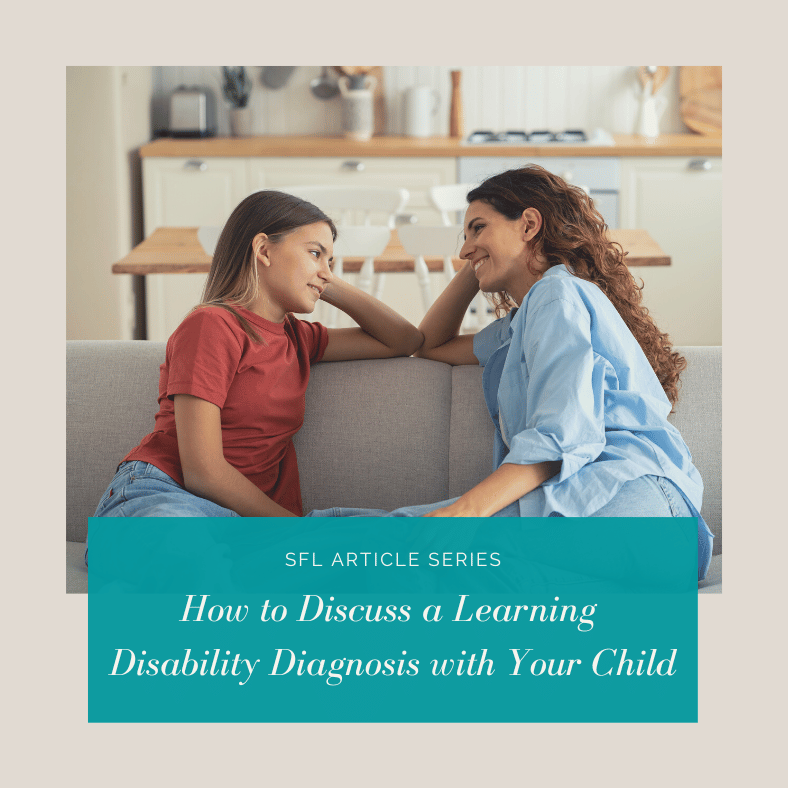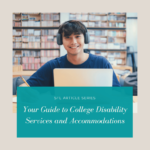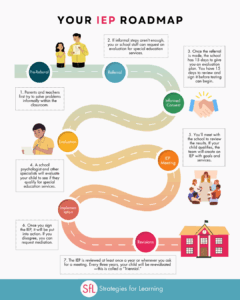No products in the cart.

A learning disability diagnosis can be an emotional and challenging experience for parents and students alike. However, open communication and a supportive approach can pave the way for both understanding and growth. There are many effective ways to talk to your child about their new learning disability diagnosis, fostering an environment of empathy, encouragement, and empowerment.
Get Informed
Before initiating a conversation about learning disabilities with your child, take the time to educate yourself about his or her specific learning disability. Understand the nature of the condition, its potential challenges, and the available support systems. With knowledge, you can address concerns and questions more effectively and show dedication to supporting your child’s growth. Strategies for Learning can connect you with experts in the field who can help you and your child understand how neurodiverse brains learn best!
Find the right time
Timing is always crucial when discussing sensitive topics. Choose a calm and relaxed environment where you and your child can talk without interruptions. Pick a time when everyone is comfortable and able to focus on the conversation, ensuring that neither you nor your child feels rushed. Adjust your language to your child’s age and comprehension level. Try to break down complex information into simple, understandable terms. Avoid overwhelming your child with technical jargon, and encourage questions throughout the discussion.
Emphasize Strengths
While it’s essential to address the challenges your child may face with a learning disability, equally emphasize your child’s strengths and abilities. Help them recognize that everyone has unique talents and a learning disability does not define their identity. Often, it is the case that children with learning disabilities have amazing gifts of creativity and incredible problem-solving skills compared to their neurotypical peers. Encourage your child to celebrate all achievements and progress academically and in other aspects of life. For example, read about how to leverage strengths to overcome the challenges of dyslexia.
Model a Positive Mindset
Promote a positive mindset by framing learning disabilities as learning differences rather than limitations. Explain that people with disabilities can overcome challenges and achieve their goals with proper support. Let your child know that asking for help is a sign of strength, not weakness, and that many successful individuals have faced and conquered similar obstacles. Encourage your child to learn about famous and successful people with the same learning disability. For example, in a survey of 69,000 self-made millionaires, 40% of entrepreneurs were found to show signs of dyslexia!
Involve Your Child
Have an open and non-judgmental discussion during which your child can feel comfortable to ask questions and express feelings. Reassure them that their emotions are valid and that you support them. Be patient, listen attentively, and validate their experiences, fostering a sense of trust and understanding. Involve your child in the decision-making process regarding education and the kinds of support that would be most beneficial at school. Discuss potential strategies, accommodations, and resources to enhance the learning experience. Empowering children to participate actively in their education instills a sense of agency and ownership over their learning journey.
Talking to your child about a learning disability diagnosis requires sensitivity, understanding, and a commitment to fostering a positive environment. By approaching the conversation with empathy, providing age-appropriate information, and emphasizing strengths, you can navigate the educational journey together with confidence. Remember that ongoing support and communication are crucial to success, and Strategies for Learning is here to help you and your child on your journey!
You can schedule a free consultation today to learn more about our services or explore our free parent workshops.
Related Resources
Looking for Academic Support and other Educational Services?
You can schedule a free initial consultation to learn more about our services. We will listen to your concerns, answer any questions, learn about the student’s needs, and help guide you through our new student intake process.






